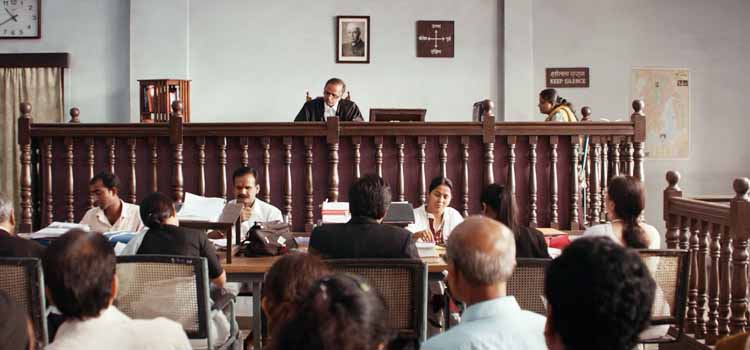How to Prepare for a Court Case
Conducting a thorough investigation and gathering evidence is a cornerstone of building a robust legal case in India. This phase is crucial for establishing the facts, supporting your legal arguments, and anticipating and countering the opposing party’s claims. Here’s a detailed guide on how to effectively conduct an investigation and gather evidence to build a strong case:
1. Collecting Relevant Documents and Records
a. Identify Key Documents
- Contracts and Agreements: Essential for disputes involving business, property, or services.
- Correspondence: Emails, letters, and messages that support your claims or defenses.
- Financial Records: Bank statements, invoices, receipts, and financial statements pertinent to the case.
- Official Records: Government-issued documents such as property deeds, birth certificates, and legal notices.
b. Organize and Preserve Evidence
- Chronological Order: Organize documents in a timeline to provide a clear sequence of events.
- Backup Copies: Make digital and physical copies of all documents to prevent loss or damage.
2. Gathering Witness Statements
a. Identify Witnesses
- Direct Witnesses: Individuals who directly observed the events in question.
- Expert Witnesses: Professionals who can provide expert opinions relevant to the case (e.g., doctors, engineers).
b. Conduct Interviews
- Prepare Questions: Draft a list of questions to ensure all relevant information is covered.
- Record Statements: Take detailed notes or record interviews (with consent) to accurately capture witness testimonies.
3. Addressing Potential Weaknesses
a. Identify Weak Points
- Inconsistent Evidence: Look for inconsistencies or gaps in your evidence.
- Counterarguments: Consider potential arguments the opposing party might use against your evidence.
b. Strengthen Your Case
- Additional Evidence: Gather supplementary evidence to support weak points.
- Expert Opinions: Obtain expert evaluations to bolster areas where your case might be vulnerable.
4. Thorough Investigation
a. Field Investigations
- Site Visits: For property disputes or accident cases, visiting the site can provide valuable insights.
- Photography and Videography: Capture visual evidence of relevant locations or items.
b. Background Checks
- Opposing Party: Conduct background checks to uncover any information that might weaken their credibility or support your case.
- Witnesses: Verify the reliability and credibility of your witnesses.
5. Documentation and Record-Keeping
a. Detailed Logs
- Investigation Log: Maintain a detailed log of all investigative activities, including dates, times, and outcomes.
- Evidence Register: Keep a catalog of all collected evidence with descriptions and sources.
b. Secure Storage
- Digital Security: Store electronic documents in secure, encrypted formats.
- Physical Security: Keep hard copies in a secure location to prevent tampering or theft.
6. Legal Compliance
a. Admissibility
- Relevance: Ensure all evidence is directly relevant to the case.
- Legality: Collect evidence legally to ensure it is admissible in court (e.g., avoid illegal recordings).
b. Procedure
- Filing Requirements: Follow court procedures for submitting evidence.
- Certification: Authenticate documents as required by law.
7. Collaboration with Legal Experts
a. Consult Your Lawyer
- Review Evidence: Have your lawyer review all gathered evidence for its legal sufficiency and relevance.
- Strategic Advice: Seek advice on how to present evidence effectively in court.
b. Use Investigative Services
- Private Investigators: Consider hiring professional investigators for complex cases requiring specialized expertise.
Conclusion
Conducting a thorough investigation and gathering comprehensive evidence is fundamental to building a strong case in the Indian legal system. By meticulously collecting and organizing documents, securing reliable witness statements, addressing potential weaknesses, and ensuring legal compliance, you can enhance your chances of a favorable verdict. Remember to work closely with your lawyer throughout the process to ensure that your evidence strategy aligns with your overall legal strategy, giving you the best chance of success in court.
Investigation & Research

Request a Call Back to Provide Details
Start by entering contact details which are your name and email address in the form and then provide brief of the matter for which you require consultation / advisory. Select the time slot suitable for the call. Reevant details regarding matter will be collected by team to schedule your call with the Lawer concerning matter / subject.

Consultation Call with Lawyer
After you receive quotation along with payment link (email and CRM) for consulation, complete payment and share relevant information and documents for the call.
Discuss matter in detail with the Lawyer and schedule any follow up calls required.

Consultation Minutes Shared
Final minutes and detailed advisory report is shared (email and CRM) with you and hardcopy, optionally, sent to the mailing address of the party.
Collect, Investigate & Research Evidence
Contact Investigations Team
Fill out the form to Contact Investigations & Research Team or make a call at +91 9958545599 .


